Description
ABSTRACT
Limitation Period and Award: The Challenge of Computation of Time
Joseph Mbadugha*
Award is the last stage and the end of arbitral proceedings. The ultimate aim of parties in entering into an arbitration agreement is that an enforceable award will be rendered in the event of a dispute arising within the purview of their agreement and that the award, if not voluntarily performed, will be enforced. One of the obstacles an award creditor may face in enforcing an award is limitation period. Improper understanding of the issue of limitation period as it relates to awards may lead to extinction or barring of the right to enforce an award. This article examines the law – statute of limitation – as it relates to enforcing arbitral awards vis-à-vis the challenge with computation of time and; whether the statutory time limit under the Limitation Act and its interpretation by the Supreme Court in the context of arbitral award is applicable to New York Convention award and enforcement by registration. It proffers recommendations after a critique in some instances of the decisions of the Appellate Courts, particularly the decisions that established two distinct starting points of ticking of time in enforcing awards, as a panacea for the negative impact of the decisions.
INTRODUCTION
It is the legitimate expectation of parties, in entering into an arbitration agreement that an enforceable award will be rendered in the event of a dispute arising from, out of, or in connection with the substantive agreement and that in the event of non-voluntary compliance with the award, it will be enforced. One of the hurdles an award creditor may encounter in enforcing an award is limitation period. Limitation period applies to arbitration as it applies to litigation.1 The purpose of statute of limitation is to require diligent prosecution of known claims and to ensure that claims are resolved while evidence is reasonably available and fresh.2
Limitation period extinguishes, and or bars a claim or right of action, if an action is not commenced within the provided limitation period. The usual legal effect of commencing an action within the statutory time limit, particularly in the context of litigation, is cessation of the original limitation period or extinction of ticking of time within the purview of the original limitation period, with a new time limit commencing from the date of judgment. In Nigeria, this effect may not be the same in arbitration as commencement of arbitration does not determine whether time will stop running for limitation period but rather the type of action commenced to enforce an award.
LIMITATION PERIOD AND AWARD
In Nigeria, the time within which to enforce an arbitral award is provided by section 7(1)(d) of the Limitation Act, Laws of the Federal Republic of Nigeria, 1966.3 This section provides thus:
7(1) The following actions shall not be brought after the expiration of six years from the date on which the cause of action accrued-
* LL.M (Wales), BL, FCIArb., FCPA. Visiting Professor of International Arbitration, Vilnius University, Vilnius, Lithuania and Principal, McCarthy Mbadugha & Co., Lagos
- Limitation Act, Laws of the Federal Republic of Nigeria, 1966, s 61; Limitation Law, CAP L67, Laws of Lagos State of Nigeria, 2005, vol 5, s 61
- Black’s Law Dictionary (7th edn) 1422
- This Act was omitted in the Laws of the Federation 1990 and 2004

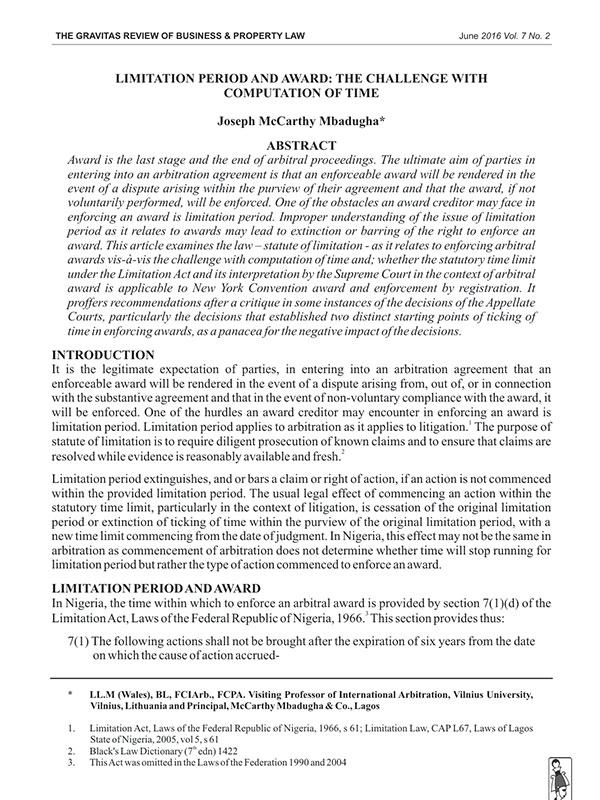
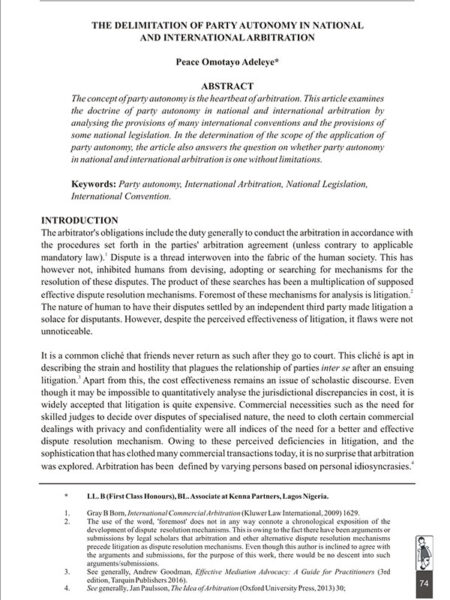
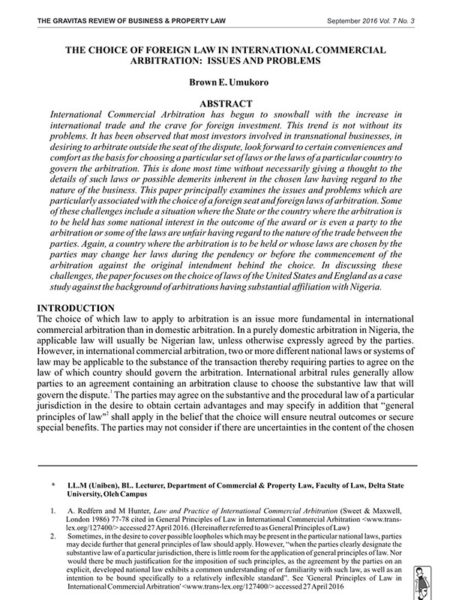
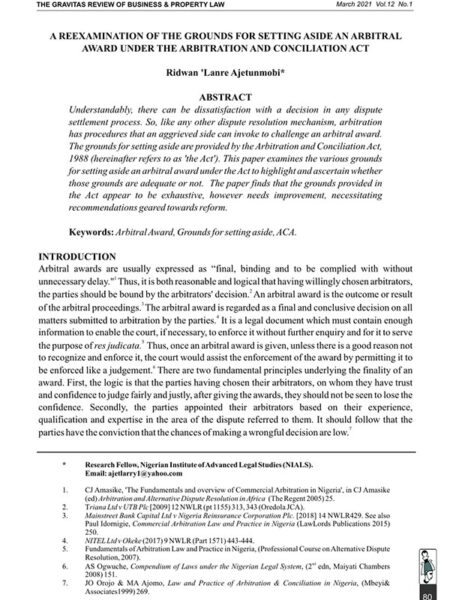
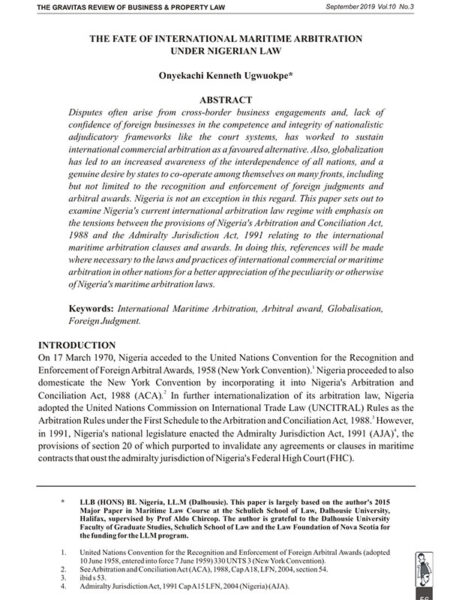


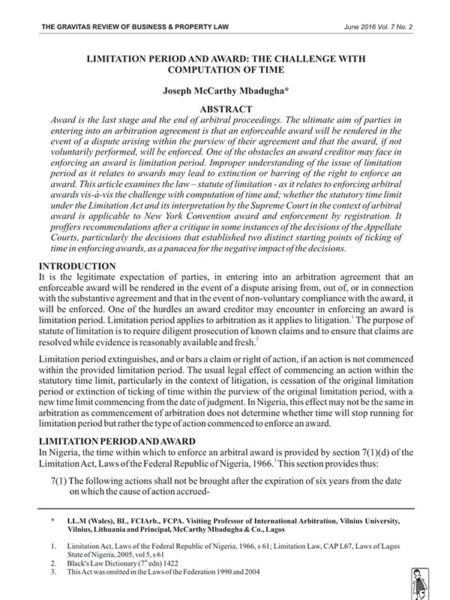
Reviews
There are no reviews yet.